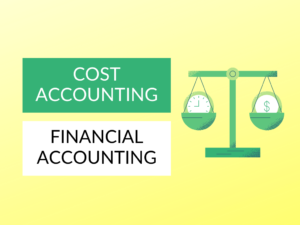Cost Accounting vs Management Accounting: Understanding the Differences
Introduction:
Cost accounting and management accounting are two critical branches of accounting that play a crucial role in decision-making and financial planning for organizations. While they share similarities, they also have distinct differences. In this article, we will explore the definitions, examples, uses, and key differences between cost accounting and management accounting.
What is Cost Accounting?
Cost accounting is a branch of accounting that focuses on capturing, analyzing, and allocating costs associated with producing goods or delivering services. It involves tracking and reporting various types of costs, such as direct materials, labor, and overhead expenses.
Examples of Cost Accounting:
- Determining the cost per unit of a product
- Calculating the cost of goods sold
- Estimating costs for a specific project
Uses of Cost Accounting:
- Cost control and cost reduction
- Pricing decisions and profitability analysis
- Budgeting and financial planning
What is Management Accounting?
Management accounting, also known as managerial accounting, involves providing financial information and analysis to support internal management in decision-making, planning, and controlling operations. It focuses on interpreting financial data and providing insights for effective managerial decisions.
Examples of Management Accounting:
- Preparing monthly management reports
- Forecasting future financial performance
- Conducting variance analysis
Uses of Management Accounting:
- Strategic planning and goal setting
- Performance evaluation and measurement
- Resource allocation and optimization
Differences Table:
| Difference Area | Cost Accounting | Management Accounting |
|---|---|---|
| Primary Focus | Recording and analyzing costs | Financial information for management decision-making |
| Time Orientation | Historical | Future-oriented |
| Purpose | Cost control and product costing | Planning, controlling, and decision support |
| User | Internal use by management | Internal use by management |
| Reporting | Standard reports such as cost variance analysis | Specialized reports based on management’s needs |
| Focus on Efficiency | Emphasizes cost reduction and efficiency improvement | Focuses on overall organizational performance |
| Scope | Primarily limited to cost-related activities | Broader scope covering financial and non-financial aspects |
| Regulations | Subject to statutory requirements | Not as heavily governed by regulations |
| Tools and Techniques | Standard cost systems, variance analysis | Budgeting, forecasting, and financial ratios |
| Long-Term Perspective | Evaluates costs on a short-term basis | Considers long-term implications |
Conclusion:
In summary, while cost accounting and management accounting share some similarities, they serve different purposes within an organization. Cost accounting primarily focuses on capturing and analyzing costs for cost control purposes, while management accounting provides financial information and analysis to aid in managerial decision-making and planning. Understanding the differences between these two branches of accounting is crucial for organizations to make informed financial decisions.
People Also Ask:
- Q: What is the main difference between cost accounting and management accounting?
- Q: Are cost accounting and management accounting only used internally?
- Q: Does management accounting require compliance with statutory regulations?
- Q: Which branch of accounting is more future-oriented?
- Q: How do cost accounting and management accounting contribute to organizational success?
A: The main difference lies in their objectives – cost accounting focuses on cost analysis and control, while management accounting aids in decision-making and planning.
A: Yes, both are primarily used for internal purposes by management to make informed decisions.
A: While cost accounting is subject to statutory requirements, management accounting is not as heavily governed by regulations.
A: Management accounting has a future-oriented perspective, aiding in forecasting and planning for the organization’s financial performance.
A: Cost accounting helps control costs and optimize resource utilization, while management accounting supports effective decision-making and overall performance improvement.


